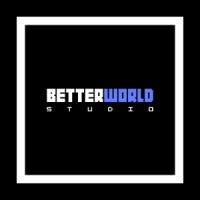Originality in mobile games
You hear everyone saying that you have to make an original game in order to be successful.
But what does that even mean? All games are in a way or another a modified idea of some other game. Many of them even have the exact same mechanics, but only...


You hear everyone saying that you have to make an original game in order to be successful.
But what does that even mean? All games are in a way or another a modified idea of some other game. Many of them even have the exact same mechanics, but only a few elements are different: it can be either the overall theme, story line, graphic style, mood and so on. Some games come up with new mechanics, but are still heavily based on everything else that’s on the market already.
What I’m trying to say here is that it’s very difficult (and rare) to come up with a totally new genre altogether. Think about it like this: even game studios that have released a game that is very original and different from everything else, still release other titles that are not that original.
So the whole point is this: don’t try too hard to create something so new, so unique, with mechanics that no one else has ever seen before, with controls that require to learn so many skills that will amaze your players. That might even have a negative impact for your audience. As long as you come up with new ideas that improve and add to an existing genre, you’re going to be fine. Think of new upgrades you could add, new add-on mechanics you could implement, or even combine elements from 2 games of different genres.
 If you really wish to try to come up with something new, it’s still a great idea to do a bit of research and find good inspiration. You could play some older games (ZX Sinclair anyone?) or you could check out the winners of Ludum dare competition (Ludum Dare 31, 30, 29) for good inspiration. There are so many original games there, you can’t even imagine. Now, I’m not saying to clone those games, I’m just saying to test as many of them as you can, then try to clear your mind and see if you can come up with new and improved ideas of what you just played. Try to do a brainstorming by yourself, just turn off your computer, take a piece of paper and a pencil and start writing down all the ideas that you can come up with. Maybe some of them will be very similar to the Ludum Dare games that you just played, maybe some will be modified versions of those games, and maybe, just maybe, a few of them will be so original, so different than everything else you’ve played, that you think it’s going to be worth your time to make it into your next full game.
If you really wish to try to come up with something new, it’s still a great idea to do a bit of research and find good inspiration. You could play some older games (ZX Sinclair anyone?) or you could check out the winners of Ludum dare competition (Ludum Dare 31, 30, 29) for good inspiration. There are so many original games there, you can’t even imagine. Now, I’m not saying to clone those games, I’m just saying to test as many of them as you can, then try to clear your mind and see if you can come up with new and improved ideas of what you just played. Try to do a brainstorming by yourself, just turn off your computer, take a piece of paper and a pencil and start writing down all the ideas that you can come up with. Maybe some of them will be very similar to the Ludum Dare games that you just played, maybe some will be modified versions of those games, and maybe, just maybe, a few of them will be so original, so different than everything else you’ve played, that you think it’s going to be worth your time to make it into your next full game.
Now let’s move the discussion to the other side of the table: let’s say you come up with a new and very unique idea. And it’s so incredibly amazing that will turn into a great successful game, and you’ll see that others will do more and more games like yours. Some will make plain clones, others will try to improve it by adding new features.
Instead of being angry when (if ever) this will happen, try to embrace it. Because it means that you have created a new genre, and you still have the advantage of being the first on the market. It’s very likely that most people that love the new genre already know and like your game, so use that to your own advantage. In other words, now it’s a great time for a sequel. Don’t postpone it, or you’ll lose the momentum. You can start working on your sequel even as soon as a few weeks after you’re releasing your first game. You can even work on both of them at the same time (add patches to the first one while also working on the sequel).
All in all, think about if it’s really worth your time to come up with a 100% original idea for a game. Don’t forget about the risks: will these mechanics be fun enough so that many people will enjoy it? And how many different prototypes do you have to test until you come across one that can indeed become a success? And if it DOES happen to be a great idea, can YOUR game become the hit that it deserves, or can someone else make a similar game (based on yours), promote it much better than you could at the moment, and have much, much more success than you? Wouldn’t it be better to make a 100% original game as your 2nd or third game? By then, you’ll learn a lot of things and you won’t make the same mistakes on the game that really matters to you.
 People copied game ideas many times before (and that’s normal, see all explanations above), and some of these cases are well documented: the 2048 game that was based on Threes, Candy Crush Saga copied CandySwipe and they’re even suing the original developer, despite that it was released two years before.
People copied game ideas many times before (and that’s normal, see all explanations above), and some of these cases are well documented: the 2048 game that was based on Threes, Candy Crush Saga copied CandySwipe and they’re even suing the original developer, despite that it was released two years before.
And don’t forget that sometimes, even if you play a game and it looks totally new and original to you, it doesn’t mean that that’s the case. Many times, games are based on other titles that you never even heard of, or the idea is so simple that even the developer doesn’t know that there is already a similar game out there with the one he or she just released. For instance, I found out that Running Circles is based on some other game (oO), after I released the article “Running Circles – Case Study“. That doesn’t mean that Running Circles is less interesting or appealing, it simply does not mean anything at all. The first game was only played by a handful of users, so why not bring it to the masses?
In conclusion, one of the safest approaches is to base your game on other successful games, but add new mechanics, features and other ideas to improve on the existing ones. But that doesn’t mean you shouldn’t try to come up with 100% original ideas from time to time. The key here is to try to balance the time spent on developing both game types (100% original, worthy of a new genre and games based on others, with just a few original ideas). If that proportion is 20/80 or 10/90 of the time you spend developing each kind of game, it’s up to you.
Please let me know in the comments what’s your opinion on this. And if you think this is useful to you or to any of your dev friends, don’t forget to share it :)
If you loved the article, follow me on Medium, Twitter, Quora and check out my blog.
Read more about:
BlogsAbout the Author(s)
You May Also Like







.jpeg?width=700&auto=webp&quality=80&disable=upscale)








